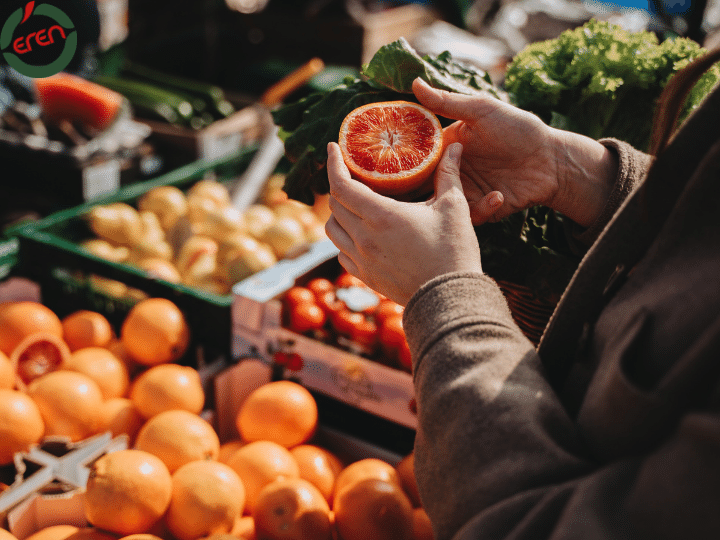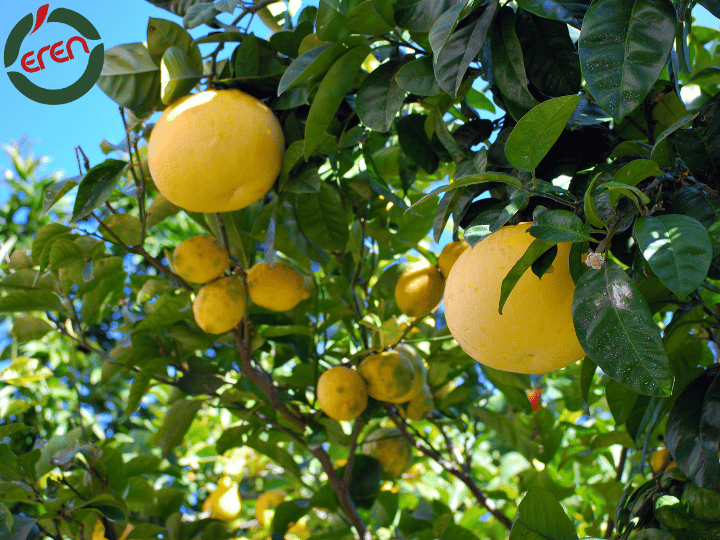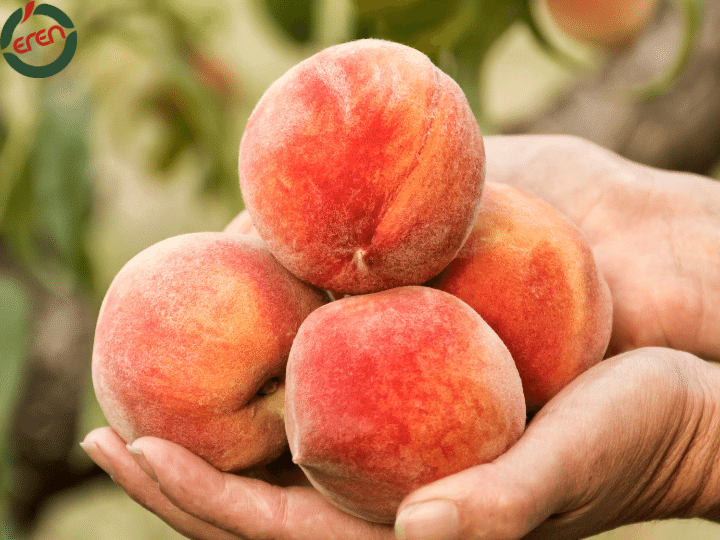Discover Why Turkish Fresh Fruit Exporter Excels in Fresh Fruit Export
Turkey is renowned for its robust fresh fruit export industry, supplying high-quality produce to international markets. As a key player in the fresh fruit and vegetable export sector, Turkish exporters have honed their strategies to meet the demands of a global clientele. For businesses involved in the fresh fruit trade, understanding Turkey's approach is crucial.
Fresh Fruit Export: Key Players and Their Impact
Turkey, alongside other major fresh fruit exporting countries, ensures a consistent supply of top-quality produce to markets worldwide. These exporters uphold stringent standards, catering to a diverse range of consumer preferences and playing a vital role in the fresh fruit and vegetable export industry. 
Fresh Fruit Export: Expanding Global Reach
Imagine having a reliable source of premium fruits and vegetables for your business. Fresh fruit export from countries like Turkey ensures that you receive high-quality produce tailored to your business needs. This focus on excellence not only meets customer expectations but also builds a strong market reputation.
Benefits of Partnering with Leading Exporters
Working with leading fresh fruit exporters offers numerous advantages:
- Consistent supply of premium produce
- Access to a wide variety of fruit types
- Reliable and timely deliveries
- Competitive pricing for bulk purchases
- Expert knowledge in fruit cultivation and distribution
Challenges in the Fresh Fruit Export Market
The global export market presents various challenges, including fluctuating production volumes and market saturation. Countries like Turkey have adapted to these challenges by emphasizing quality and reliability in their fresh fruit and vegetable export strategies.
Maintaining Export Quality
At Eren, we pride ourselves on being a leading Turkish fresh fruit exporter. Established in 1993, we have focused on delivering high-quality fruits and vegetables to clients worldwide. Our journey began with citrus exports, but we have since expanded to include a wide range of fresh produce.
Our state-of-the-art facility in Tarsus ensures our products meet the highest quality standards. We employ advanced technologies for sorting, sizing, and packaging, along with sustainable farming practices that guarantee healthy and environmentally friendly produce. 
Key Suppliers to Europe
For popular fruit varieties, several countries, including Brazil and Turkey, serve as leading suppliers to Europe. Turkey has made significant strides in providing high-quality produce that meets European standards, enhancing its role in the fresh fruit sector.
Meeting International Standards
Success in the export market requires adherence to the quality standards of target countries. While Russia remains a significant market for Turkish produce, its lower quality requirements can limit access to other markets with higher standards. Therefore, Turkish exporters must continually improve their product quality to expand their reach.
Government Support for the Fresh Fruit Sector
The Turkish government provides various incentives to support the fresh fruit and vegetable sector. These include:
- Reduced VAT rates for fresh produce
- Subsidies for producers at the municipal level
- Low rent in wholesale markets
- Tax incentives for certified organic products
Promoting Equal Competition
By implementing uniform VAT rates and supporting small and medium-sized enterprises, the Turkish government ensures fair competition in the market. This approach helps maintain a balanced and efficient fresh vegetable export sector.
Enhancing Export Capabilities
Government support also extends to improving infrastructure and logistics, which are crucial for maintaining the quality of fresh produce during transportation. This ensures that Turkish exports meet the high standards expected by international markets.
Traceability and Food Safety in Fresh Fruit Trade
Ensuring the traceability and safety of fresh fruits and vegetables is paramount. The Turkish government has implemented a system for registering sales of produce, which enhances traceability for state control of food safety. An essential aspect of this regulation is maintaining temperature regimes during transportation, particularly for perishable items like berries and mushrooms. Although some fruits and vegetables are transported without refrigeration, enforcing temperature control for even a limited range represents a significant advancement compared to current practices in the Caucasus and Central Asia.
Despite some gaps in government statistics, Turkey's model is more efficient than those in neighboring regions. Studying Turkish practices in depth can provide valuable insights for countries aiming to improve their own systems.
Market Pricing and Business Financing System
The wholesale sales model in Turkey allows participants to quickly respond to market fluctuations. A two-level system of commission agents helps form daily wholesale prices based on supply and demand in both domestic and foreign markets. These agents charge commissions of 8-12%, but some farmers report higher rates. Commission agents also provide financial assistance to producers before harvest, acting as intermediaries to ensure stable market operations.
This system is particularly relevant for countries with small-scale production and less developed retail formats. In Istanbul, modern retail formats, including online trading, account for over 50% of all sales. This trend is expected to grow, pushing larger producers to sell directly to retail chains and reducing reliance on commission agents.
Wholesale Markets and Their Role in Distribution
The primary element of Istanbul's fruit and vegetable distribution system is its two wholesale markets, managed by the municipality. These markets handle over 3 million tonnes of produce annually, covering more than half of Istanbul's consumption. While retail chains are significant customers in other regions, they often avoid wholesale markets in Turkey, preferring direct supply chains. Unorganized retailers, who are the main clients of Istanbul's wholesale market, typically operate with high trade margins, attracting customers with flashy merchandising.
Merchandising and Retail Strategies
Turkish retail chains focus heavily on their fruit and vegetable departments, often placing them at store entrances to maximize space efficiency. Despite high competition, Turkish discounters maintain a strong market presence by offering aggressive promotions and optimizing supply chain processes. The trade margins in Turkey's discounter segment range from 30-50%, excluding promotional offers. This model is challenging to replicate in regions with lower income levels and trade margins, but the Turkish experience offers valuable lessons.
Development of E-Grocery and Online Sales
The Turkish E-Grocery industry is rapidly growing, with many offline retailers expanding into this segment. Various business models are represented, including scheduled delivery from distribution centers, fast delivery from dark stores, and delivery from offline stores or markets. Online grocery retail in Turkey has reached 9% of total sales for some chains, demonstrating profitability and growth potential. Analyzing Turkish E-Grocery models can help retailers in other regions identify profitable strategies.
Logistics and the Fruit and Vegetable Trade
The growth of Turkish retail chains has driven demand for fresh fruit logistics services, leading to innovations in transport and warehouse efficiency. Long-term partnerships with retail chains help logistics providers reduce costs and improve service quality. These partnerships are crucial for maintaining the supply chain's stability and efficiency, offering insights for regions with underdeveloped logistics infrastructure.
The Role of Pooling Services
Pooling services have become standard in Turkey, driven by retail chains seeking to reduce costs and increase efficiency. Various business models exist, including international operators, local providers, and reusable packaging solutions. Pooling services help reduce mechanical damage to products, lower purchase prices, and improve transport and warehouse efficiency. This experience is highly relevant for regions seeking to reduce supply chain losses and improve overall market efficiency.
Fruit Packing Facility
At Eren, we pride ourselves on our advanced fruit packing facility located in Tarsus. This state-of-the-art facility plays a crucial role in our ability to deliver top-quality produce to our clients worldwide. Our packing processes involve the latest technologies for sorting, sizing, and packaging, ensuring that every piece of fruit meets the highest standards of quality and freshness. -001%20-%20Copy.jpg)
Our facility is equipped with optical sizing and sorting machines that precisely categorize fruits based on size and quality. This technology helps in maintaining uniformity in our shipments, which is highly valued by our clients. Additionally, we follow strict hygiene protocols to ensure that the fruits are handled in a safe and sanitary environment.
We also emphasize sustainable practices in our packing facility. By using environmentally friendly packaging materials and reducing waste, we contribute to a greener planet while delivering the freshest fruits and vegetables to our customers. Our commitment to quality and sustainability makes us a preferred choice for businesses looking for a reliable fresh fruit and vegetable exporter.
Working with Eren means partnering with a company that understands the complexities of the fresh fruit trade. From our early days focusing on citrus exports to our current operations spanning 63 countries, we have always prioritized quality and customer satisfaction. Our extensive experience with different customs procedures, packaging preferences, and cultural demands allows us to cater to a diverse client base effectively.
Contact us today to learn more about how we can meet your fresh fruit and vegetable export needs. Let's work together to bring the best of Turkish produce to your market.

 Lemon
Lemon Mandarin
Mandarin Orange
Orange Grapefruit
Grapefruit Fruits
Fruits Vegetables
Vegetables


